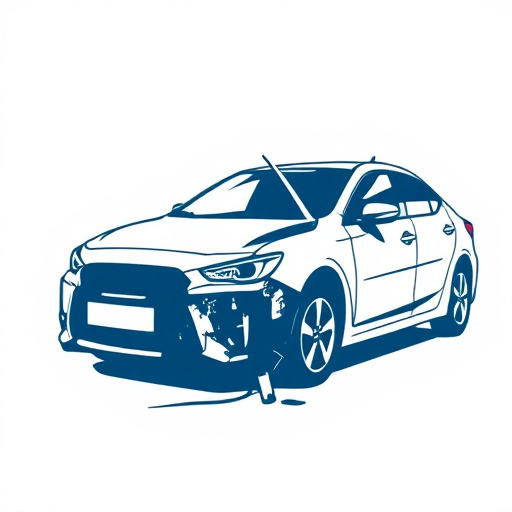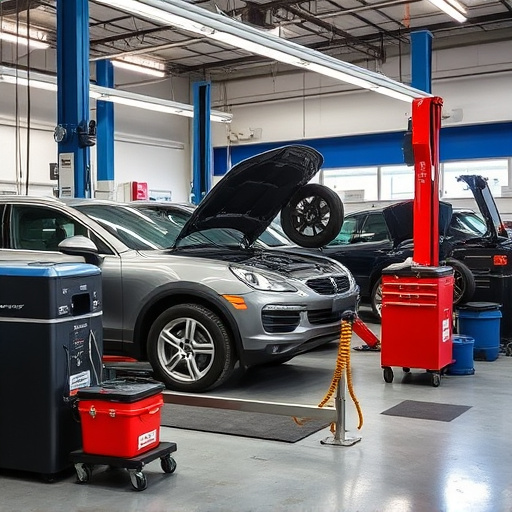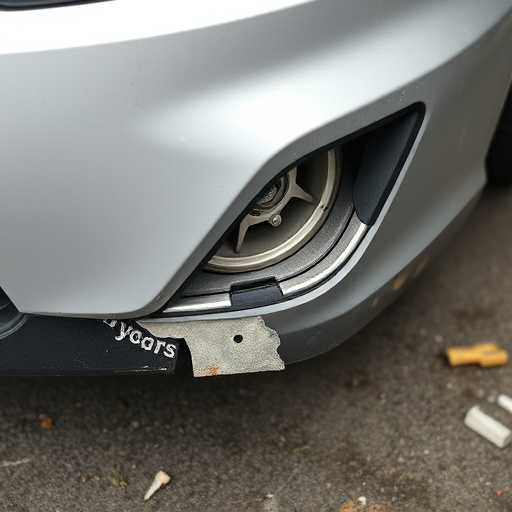Emotional intelligence (EI) is crucial for effective vehicle repair communication. EI skills help mechanics assess customer emotions, offer reassurance and personalized solutions in stressful situations, building trust and satisfaction. Active listening, clear explanations, and empathy improve interactions, prevent misdiagnosis, and foster transparency, leading to stronger relationships, informed decisions, better retention, and referrals.
Emotional intelligence (EQ) plays a pivotal role in enhancing customer satisfaction during vehicle repairs, transforming what could be a stressful experience into a positive interaction. This article explores how EQ impacts customer service in auto workshops, offering insights on effective communication strategies. We delve into building trust through empathy, highlighting its significance in fostering strong relationships between mechanics and clients. Understanding these dynamics is crucial for improving vehicle repair communication and ensuring client retention.
- Understanding Emotional Intelligence in Customer Service
- Effective Communication Strategies for Vehicle Repairs
- Building Trust Through Empathy in Auto Workshops
Understanding Emotional Intelligence in Customer Service

Emotional intelligence (EI) is a vital skill set in any customer-facing industry, and vehicle repair communication is no exception. It refers to an individual’s ability to recognize, understand, and manage their own emotions, as well as empathize with others. In the context of car body shops or vehicle restoration centers, EI plays a significant role in creating a positive and effective interaction between staff and customers.
When a client brings their vehicle in for repairs, whether it’s for dent repair or more complex services, they are often already under stress due to unforeseen expenses and time constraints. A customer service representative with high EI can quickly assess the emotional state of the customer, provide reassurance, and offer personalized solutions. This simple act of understanding and addressing a client’s emotions can foster trust and satisfaction, ensuring long-term loyalty to the vehicle repair shop.
Effective Communication Strategies for Vehicle Repairs

Effective communication is key when it comes to vehicle repair, as it ensures a seamless and satisfying experience for both the customer and the mechanic. The process involves clear, concise, and empathetic dialogue to address the client’s concerns and needs. One of the primary strategies is active listening, where the mechanic pays close attention to the customer’s description of issues, asking relevant questions to gain a thorough understanding. This step is crucial as it prevents misdiagnosis and subsequent costly mistakes.
Additionally, using simple language to explain complex vehicle repair processes is essential. Mechanics should avoid technical jargon that might confuse clients. Instead, they can break down repairs into digestible steps, providing transparency. For instance, when discussing autobody repairs or fender repair, a mechanic could say, “We’ll replace the damaged panel with a new one, ensuring a precise fit and matching color for a like-new look.” Such an approach builds trust and ensures customers feel involved in the vehicle restoration process.
Building Trust Through Empathy in Auto Workshops

In the bustling auto workshops, where intricate vehicle repair communication is key, building trust with clients goes beyond technical proficiency. Empathy plays a pivotal role in fostering strong relationships and ensuring customer satisfaction. When a client brings their beloved vehicle into an autobody repairs shop for services like dent removal or car scratch repair, they are vulnerable to uncertainty and stress. A sensitive approach where mechanics demonstrate understanding and compassion can instantly put clients at ease. This simple yet powerful act of empathy serves as a foundation for open communication, encouraging clients to share details about their vehicle’s history and specific concerns.
By actively listening and empathizing with clients’ situations, auto repair professionals create an environment that promotes transparency. This trust-building process encourages clients to ask questions, understand the scope of work involved in repairs, and make informed decisions. Effective emotional intelligence enables mechanics to connect on a human level, ensuring that every interaction is not just about vehicle repair communication but also about caring for the client’s interests, which ultimately leads to better retention and referrals.
Emotional intelligence plays a pivotal role in enhancing vehicle repair communication, fostering trust between mechanics and customers. By employing empathy, active listening, and understanding customer concerns, auto workshops can significantly improve their services. These strategies not only facilitate effective problem-solving but also create a positive, less stressful experience for clients. Ultimately, prioritizing emotional intelligence in vehicle repair communication is a game-changer, ensuring satisfied customers and thriving workshop reputations.













